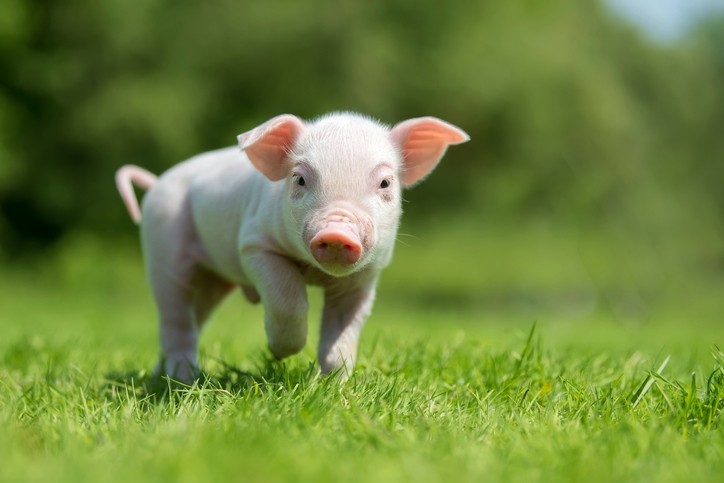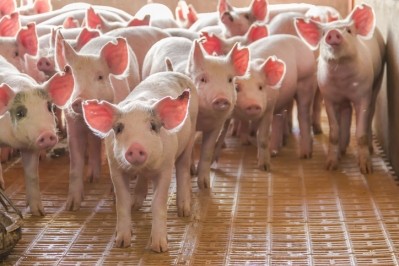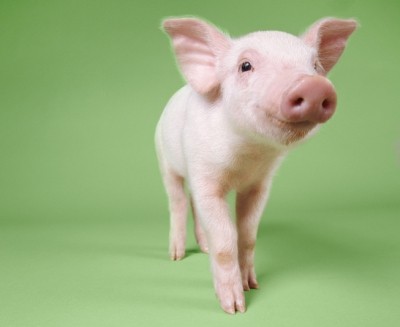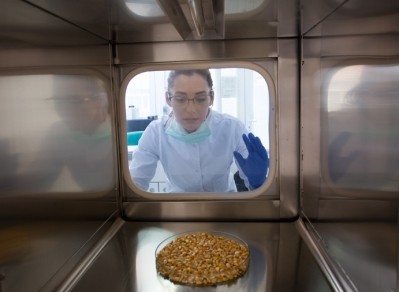Spanish trial shows potential for protected benzoic acid in zero zinc oxide diets

Piglets fed diets containing the protected organic acid product showed higher average daily gain (ADG) and lower feed conversion ratio (FCR) in all the farms compared with the piglets on the control diet; there were no differences in feed intake in the experimental and control groups, said the company.
There was also a reduction on mortality and incidence of diarrhea on all the farms for the piglets receiving the benzoic acid, said Dr Marisol Castillo, senior technical services manager, Novus Europe.
Preliminary results from examining the microbiota profiles showed differences on biodiversity and composition, she told FeedNavigator.
She presented on the findings of the trial at the Zero Zinc Summit in Denmark in June, an event held to look at alternative strategies to the use of ZnO in weaned piglet diets in the EU, given the pending EU-wide ban on such use of ZnO.
Background
The early development of piglets depends directly on their health and nutrition; it is key for their lifetime performance, said Novus.
Intestinal challenges are the main cause of performance losses during the post-weaning period, which will consequently translate into critical economical losses accumulated throughout the pig’s life. While ZnO inhibits growth of certain pathogenic microorganisms in the gut that challenges piglets during first days after weaning (Holm and Poulsen, 1996), there are other strategies that can be used after weaning, said the company.
Methodology
Novus said the goal of its trial in Spain was to assess the efficacy of its coated benzoic acid, branded as Provenia, on piglets’ performance and health under field conditions.
“We wanted to have a real picture of what is happening in the field, through working with commercial farms in Spain that were currently using ZnO as a preventative for post-weaning diarrhea. The trial was done in collaboration with Dr Antonio Palomo from the Complutense University of Madrid, He was responsible for selecting the farms and dividing the piglets into the different groups,” said Castillo.
All the farms had similar facilities, size and nutrition programs - no antibiotics added in feed – she said.
Trial details: Four commercial farms in Spain; size of total cohort: 2,610 piglets
- Initial body weight of the piglets: 6.0-6.5 Kg PV
- Piglets were weaned at 22-25 days
- End of trial body weight: 17-20 kg
- Average historical mortality in the farms used: 2-4%
- All farms were using ZnO (2500ppm) during the first 10 days after weaning as a standard program (first and second diet).
- All farms had similar health status and feeding strategies.
One half of the weaned piglets on each farm received ZnO, at the typical dosage of 2500ppm, and the other half of the piglets received benzoic acid (PBA; 2.5kg/ton), she said.
“The administration of both products, ZnO and Provenia, started at creep feeding and lasted until the end of pre-started feeding. The performance of the animals was measured at the end of the starter period, that is around 20kg body weight per piglet.”
Feeds were equivalent nutritionally. Piglets were allocated to pens depending on size and sex and the production parameters tested included feed intake (FI), average daily gain (ADG), mortality, runts piglets, incidence of disease and medication costs.
“At the end of the trial, we also took some samples from feces as we wanted to see what was happening to the gut microbiota of these animals,” said Castillo.
Such post-trial molecular analysis was carried out at the University of Bologna in Italy, she added.
Results
The team saw that all piglets receiving the Provenia based diets had better FCR throughout the whole period of the trial, she said.
The researchers did not observe differences in feed intake between the experimental and control groups, but the animals fed with the benzoic acid product showed a better gain; they had a little bit more growth compared to piglets getting zinc oxide, said Castillo.
“We also measured the number of piglets with diarrhea post-weaning, and, we again observed the same tendency - an improvement in this respect in the piglets receiving Provenia on all farms,” she said.
Gut microbiota modulation
The fact that the company’s benzoic acid is protected is critical, she said.
Typically, benzoic acid is an organic acid that modifies the intracellular pH of gut bacteria and shifts gut bacterial profile by creating an environment that minimizes the proliferation of pathogenic bacteria (Yousaf et al., 2016), said Novus. But despite being commonly used as a feed supplement to promote gut health, benzoic acid is generally inactivated before reaching the hindgut, where it is most needed, the company said. However, when embedded in a fat matrix like in the way Provenia is, benzoic acid can be slowly released throughout the intestinal tract, explained the producer.
In this way, Provenia is most likely modulating the gut microbiota, said Castillo.
“While we only have preliminary results on the feces, we see that the animals fed with Provenia had different bacterial populations in the gut than the animals fed zinc oxide; and we also observed a higher biodiversity index in the piglets fed Provenia.”
High bacterial diversity in piglets means the animal has a more stable microflora, and fewer opportunities for pathogens to cause imbalance of the intestinal microflora, such imbalance can result in the onset of diseases, she said.
So, under the conditions of this particular field trial, Provenia proved effective, but the product still needs to be evaluated under a range of different commercial farming conditions to determine its efficacy as a tool for pig producers requiring zero zinc oxide diets, she said.
Novus is planning further trials in this respect, to shed additional light on the results, to dig deeper, said Castillo.
FeedNavigator ran a webinar, Weaning Without Zinc, last month, with a raft of experts on the panel. The webinar can be viewed on demand.















